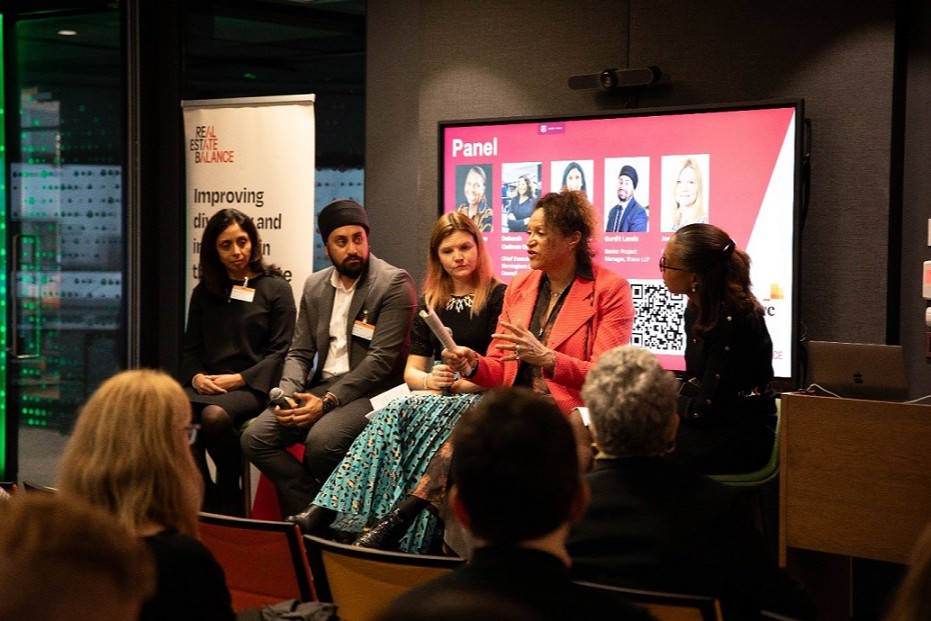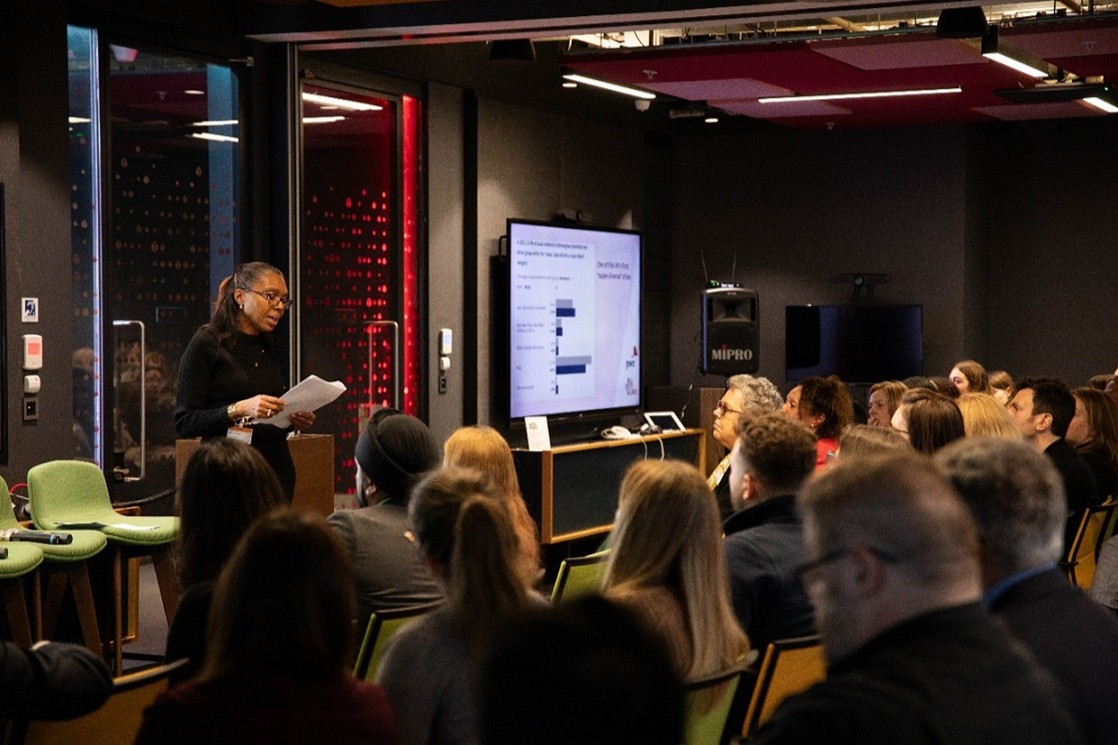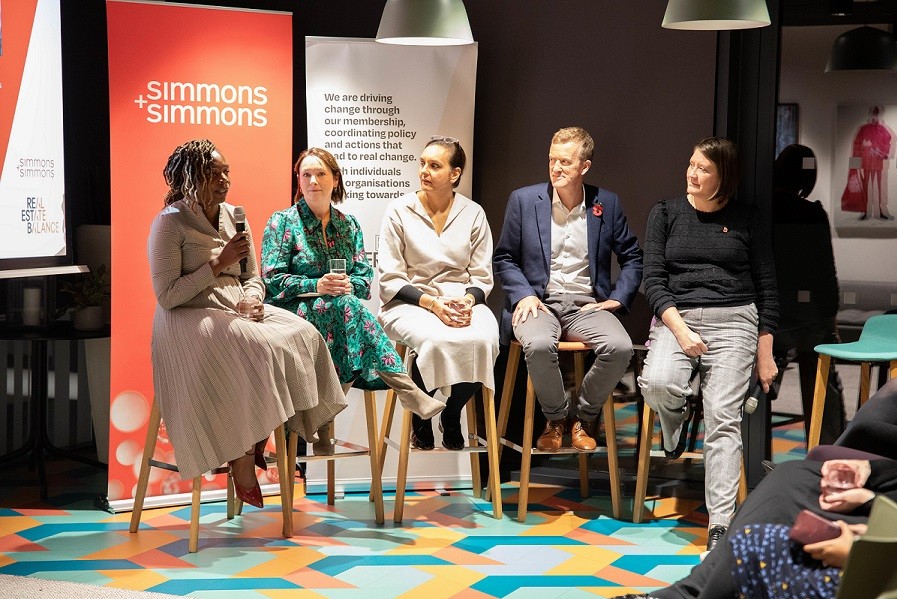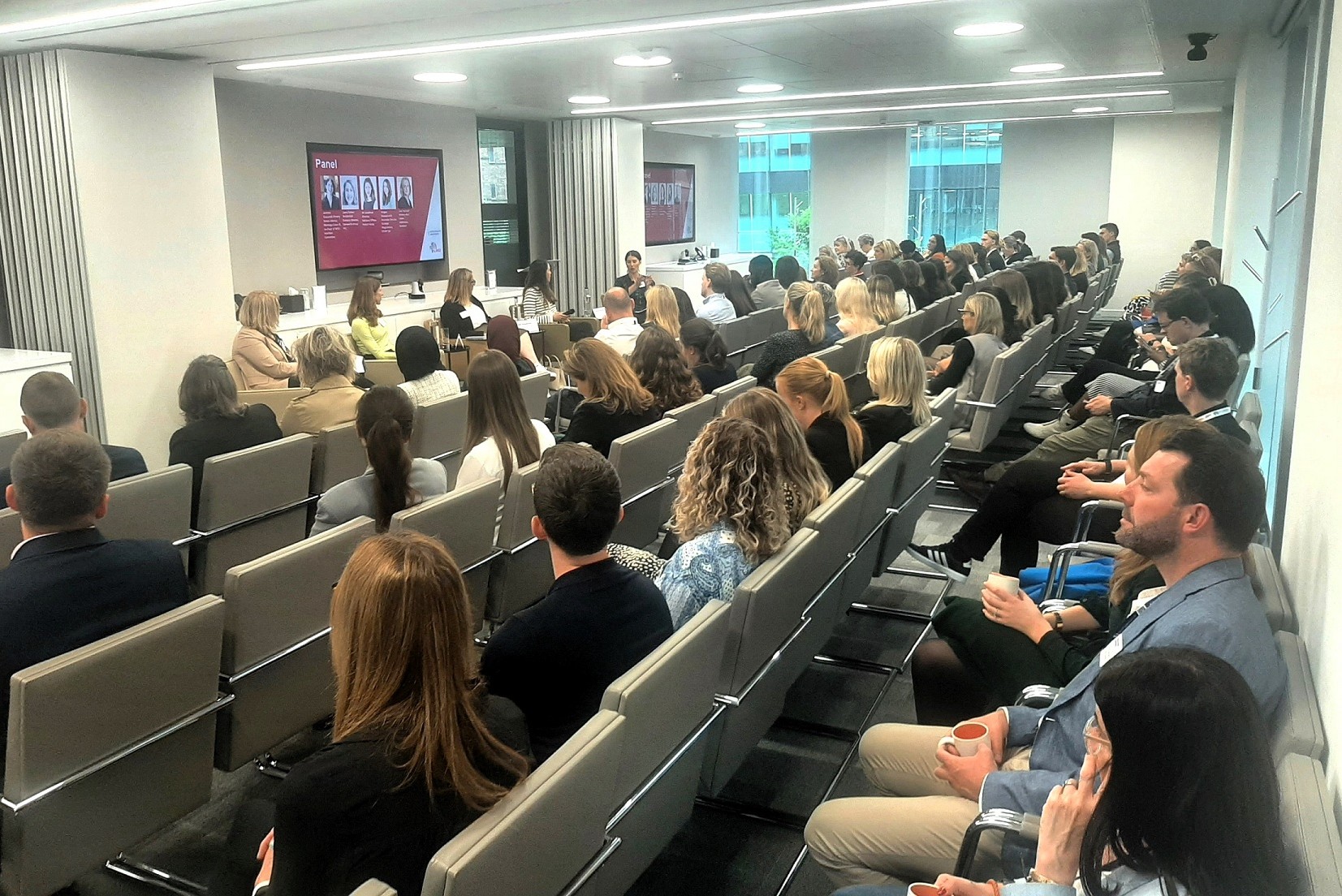By joining Real Estate Balance’s email list, you agree to receive email updates from time to time about organisation news, events being held and information about our partners in accordance with the terms outlined in our privacy notice, which you can read in full here.
Sign upOpening up opportunities for real estate careers in Birmingham and the Midlands

In February 2024, the latest Real Estate Balance activity outside of London saw us convene speakers and attendees working in Birmingham and the wider Midlands area to discuss the role of real estate and associated sectors in progressing equity, diversity and inclusion (EDI) in the region.
The background to the discussion was the demographics of the region’s population, with Birmingham itself being one of Britain’s ‘super-diverse’ cities, with more than half the population being ethnic ‘minorities’, and more than 100 languages spoken amongst its well over a million residents.
As well as its diverse population, Birmingham is youthful, with more than 40% of people aged under-25. Its five universities provide highly-educated talent which, along with its youthfulness and predicted population growth, are expected to be key drivers of real estate growth over the next decade.
It is also worth noting that the West Midlands ranks in the lowest quintiles for childhood poverty and disadvantage and also socio-cultural advantage when it comes to social mobility indicators, with these challenges offset by the region being in the top quintile when it comes to research and development.
Attendees were welcomed to the discussion - kindly hosted by PwC - in Birmingham by Rob Walker, the company’s UK Real Estate Leader, and by Sue Brown, the Managing Director of Real Estate Balance.
Deborah Cadman OBE, Chief Executive of Birmingham City Council, addressed the audience before joining the below panel of real estate and associated sector professionals:
• Sandy Munroe, Partner, Davitt Jones Bould (Chair)
• Trusha Kachhela, Head of Legal Business Solutions, PwC United Kingdom
• Gurdit Landa, Senior Project Manager, Stace LLP
• Joanna Raine, Partner, Cushman & Wakefield
The first question of the afternoon related to the relationship between the city’s real estate community and its schools, colleges and universities, with the speakers all agreeing on how vital it is to engage with young people and their families as early as possible on the range and opportunities of careers available.
The speakers also discussed the importance of the apprenticeship agenda and non-traditional routes of entry into an industry that traditionally prefers ‘red-brick university’ graduates and accredited professionals, and also talked about the power of role models.
They talked eloquently about the importance of young people engaging with property professionals who looked like them, spoke like them and could talk about upbringings and experiences with a shared resonance.
The spotlight has been placed on diversity and inclusion in a way that it hasn’t been before but that is still not good enough… I think we all need to commit to live those values every day and I like to think that I do but there are practical things that are really important. How many of you here today work at organisations which make the most out of your apprenticeship levy? That is a great opportunity that we need to rethink – how are we using it for best effect and if we aren’t using it, we should pool it to respond to the challenges we’ve got in our communities. Deborah Cadman OBE.
Deborah Cadman OBE
Gurdit discussed a programme whereby Stace LLP identifies schools with a significant number of pupils from lower socioeconomic backgrounds and invites the pupils to experience and familiarise themselves with life in an office setting for a few days.
At PwC, the ‘One firm, one day’ volunteering initiative allows every member of staff to spend time supporting initiatives they value, with many the hours going into time at schools local to its 19 offices, helping children to read and also encouraging them that professional careers are attainable.
Joanna advocated for progressive recruitment practices, including making EDI policies available to applicants, gender decoding the language in job advertisements and contextualised recruitment processes, which are optional for the candidate but take a more nuanced view of their educational qualifications in light of where they studied, for example.
Sandy asked the speakers what can be done to ensure that there are opportunities for progression for diverse talent in the building, so to speak, and working in our industry, so that we ensure the opportunities for progression exist and that the senior leadership in our companies are reflective of the ethnic make-up of the city of Birmingham and the wider region.
For Gurdit, the answer partially lies in mentorship, with him wanting to see senior managers and partners making an active investment in time in their junior and underrepresented colleagues. He also built upon Joanna’s point by discussing the value of diverse interview and promotion panels and rephrasing questions like “what are your experiences?” to “what would you do in this situation?”

Sandy, pictured above, also asked about gender and ethnicity pay gap data and whether reporting the medians are the most effective way to make comparisons. Trusha pointed out that PwC published their gender pay gap a year in advance of being legally required to do so, and there was indeed a gender pay gap, despite men and women being paid the same for the same roles (as is the legal requirement). This led to company-wide conversations about the possible reasons for the gender pay gap, one of which was men being disproportionately represented in senior, well paid positions. The gap has since fallen to four per cent.
Joanna added that similar conversations had taken place at Cushman and Wakefield, in addition to a discussion about why women were more likely to leave at a certain level. Joanna added that, for her, what a company does with the data is just as important as the data itself.
A key feature of Real Estate Balance events is giving everyone the opportunity to engage with the speakers, both in the main session and during networking. The participants discussed placemaking, regeneration and community engagement, opening up real estate roles with educational scholarships and bursaries and educating line managers on EDI issues on how to be better managers during the Q&A part of the event.
Introducing reverse mentoring, unconscious bias training for senior leaders, anonymous reporting mechanisms for inappropriate attitudes and behaviours , as well as targets relating to diversity on promotion lists all came up as examples of best practice that organisations should consider as part of the EDI conversation.
One question which really resonated related to imposter syndrome, with one panellist discussing their own experiences of it throughout their career, reflecting that coaching sessions had helped to mitigate it. They added that it is something they would be aware of for the rest of their career.
Thank you to PwC for hosting this insightful conversation and welcoming Real Estate Balance to Birmingham, to everyone who attended and contributed to the discussions, and to Sandy, Deborah, Trusha, Joanna, Gurdit and Rob for sharing their views and expertise.


